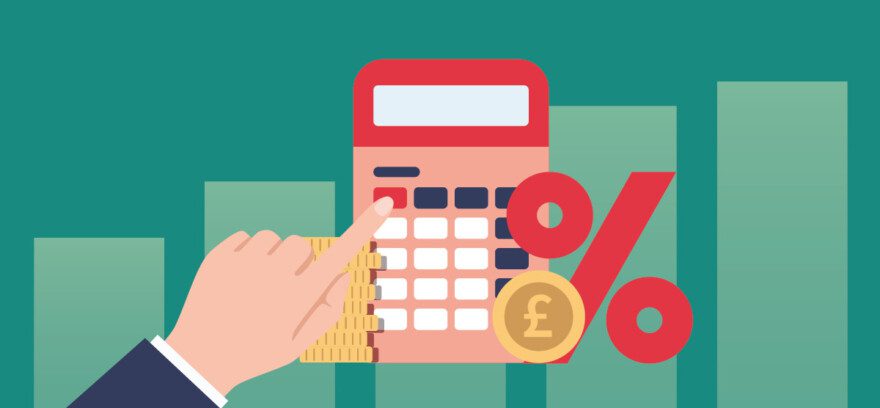UK markets ended the week in a subdued state, with the FTSE 100 Index falling by 1.67% to trade at 7,490 points at the time of writing. UK inflation remained at 8.7% in May, worse than expectations of 8.4%, marking the fourth month in a row that prices have exceeded forecast, adding to the gloom affecting many households.
To step up its fight against this persistent inflation, the Bank of England raised interest rates to 5% on Thursday, with the Monetary Policy Committee voting seven to two in favour of the larger-than-expected increase. UK interest rates are now at their highest level since 2008, which the Bank of England hopes will demonstrate its commitment to returning inflation to the 2% target.
The rise will reinforce market movements over the past month that have prompted lenders to reprice fixed-rate mortgage deals. Borrowers on variable or tracker deals are likely to see their monthly bills rise rapidly.
Markets are now expecting UK interest rates will climb to a peak of around 6% by the end of the year, although the Monetary Policy Committee made little comment on the matter. Instead, the Committee reiterated its previous commitment to tighten monetary policy further if there were to be evidence of more persistent pressures. With the focus firmly on the task of getting inflation under control, heightened recession risk is becoming accepted as a necessary evil.
Elsewhere, British retail sales unexpectedly grew last month boosted by spending on summer clothing and outdoor goods.
Commodity markets
In the commodity markets, Brent crude futures traded around $73 per barrel on Friday, after hawkish rhetoric from major central banks raised concerns that interest rates will remain higher for longer, increasing the negative impact on demand.
On the supply side, US crude inventories fell by 3.8 million barrels in the last week to 463.3 million barrels, compared with analysts’ expectations in a Reuters poll for a 300,000-barrel rise. Given the decline in oil inventories, prices would ordinarily have risen, however, they are simply being weighed down by higher interest rates. Investors now await Chinese factory activity data next week, which could give a clearer indication of the strength of China’s economy and its subsequent effect on oil demand.
Gold traded around $1,915 an ounce on Friday, dropping to a three-month low as rising interest rates globally continued to pressure demand for non-interest bearing bullion assets.
US equity futures
US equity futures fell on Friday, as investors continue to assess how resilient the economy may be to incoming interest rate hikes. In Thursday’s regular trading session, The Dow Jones Industrial Average fell 0.01%, the S&P 500 Index rose 0.37%, while sharp gains in the tech sector resulted in the Nasdaq Composite gaining 0.95%.
US government bonds came under selling pressure on Thursday, as Federal Reserve Chair Jerome Powell warned interest rates will need to rise further for inflation to slow to its 2% target. The two-year Treasury yield, which is sensitive to changes in interest rate expectations, rose as much as 0.1% to 4.8%, its highest point since early March, while the 10-year yield rose to 3.8%. The yield on bonds rises as their prices fall. The moves came as Powell signalled to the Senate Banking Committee that the central bank could opt for two more quarter-point rate increases by the end of the year.
Data from the US Department of Labor on Thursday showed the number of applications for unemployment aid last week remained unchanged from the previous seven days, offering the central bank more leeway to take rates higher.
The US and China made some progress towards stabilising bilateral relations Chinese President Xi Jinping declared on Monday, as he held a long-delayed meeting with US Secretary of State Antony Blinken. Xi’s comments represent the strongest signal yet that Beijing is willing to consider a truce in its increasingly acrimonious relationship with Washington.
“The two countries should properly handle Sino-US relations with an attitude of being responsible to history, the people and the world,” Xi said. However, relations soured later in the week after President Joe Biden called President Xi a “dictator”, in a row that threatens the nascent attempt to stabilise the deteriorating relationship between the two powers.
The information provided in this communication is not advice or a personal recommendation, and you should not make any investment decisions on the basis of it. If you are unsure of whether an investment is right for you, please seek advice. If you choose to invest, your capital may be at risk and the value of an investment may fall as well as rise in value, so you could get back less than you originally invested.
